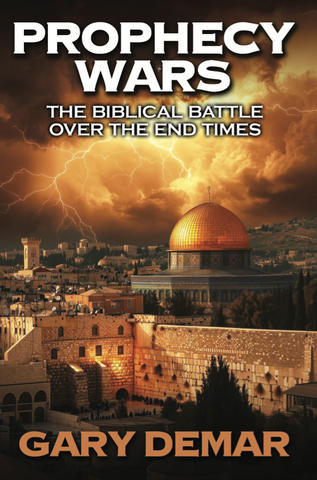Gary discusses the current state of eschatology debates online.
A post on a Facebook page had an interesting discussion on Luke 17 and its relationship to Matthew 24-25 and Greg L. Bahnsen’s view of that relationship. Dr. Bahnsen took the view that Luke 17:22-37 refers to the Second Coming while Matthew 24:1-34 refers to the judgment on Jerusalem that took place before that first-century generation passed away (24:34). Kenneth Gentry agrees with Dr. Bahnsen. According to Bahnsen and Gentry, verses after Matthew 24:35 refer to the Second Coming.
This is not a new debate. A great deal of material related to eschatology has resurfaced thanks to the internet. For example, Nehemiah Nisbett (d. 1812) dealt with the relationship between Luke 17 and Matthew 24 in The Triumphs of Christianity over Infidelity Displayed (1797/1802). See his parallel chart at the end on this chapter (313).
I discuss the argument of a division in Matthew 24 separating events related to the destruction of Jerusalem in AD 70 and the claim that verse 35 serves as a transition text to a prophecy related to physical coming of Jesus that is still to take place. Since I cover the content of this view in my book Last Days Madness, I won’t repeat all that I’ve written there. It is important to note that one of the reasons I believe Luke 17 and Matthew 24 through verse 41 are describing the same event—the judgment on Jerusalem and not the Second Coming—is the ordering of specific prophetic events related to Matthew 24:35-36.

Prophecy Wars: The Biblical Battle Over the End Times
There is a long history of skeptics turning to Bible prophecy to claim that Jesus was wrong about the timing of His coming at “the end of the age” (Matt. 24:3) and the signs associated with it. Noted atheist Bertrand Russell (1872-1970) is one of them and Bart Ehrman is a modern example. It’s obvious that neither Russell or Ehrman are aware of or are ignoring the mountain of scholarship that was available to them that showed that the prophecy given by Jesus was fulfilled in great detail just as He said it would be before the generation of His day passed away.
Buy NowGary discusses the current state of eschatology debates online. It can be easy to become dismissive of others who can’t understand or agree with your position, but Gary has a different approach. He often says, “Don’t give a reason for people to reject your position except the position itself.”

